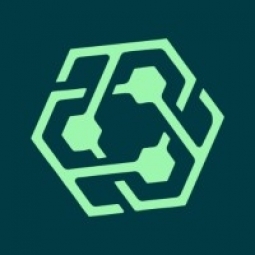Customer Company Size
Large Corporate
Region
- Europe
Country
- Germany
Product
- Perun
Tech Stack
- Blockchain
- Layer-2 Protocol
- Ethereum
- Polkadot
- Cosmos
Implementation Scale
- Enterprise-wide Deployment
Impact Metrics
- Productivity Improvements
- Innovation Output
Technology Category
- Application Infrastructure & Middleware - Blockchain
- Analytics & Modeling - Real Time Analytics
Applicable Industries
- Electronics
- Automotive
Applicable Functions
- Discrete Manufacturing
- Product Research & Development
Use Cases
- Machine to Machine Payments
- Smart Contracts
Services
- Software Design & Engineering Services
- System Integration
About The Customer
Bosch Research is an advanced research group of 1,800 people and part of The Bosch Group. The Bosch Group was founded in 1886 and currently employs 395,000 people with 2020 sales of € 71.5 billion ($80 billion). The company is active in everything from autonomous vehicles to thermal plants. The Economy of Things will touch many lines of business. That's why the company's advanced research group, Bosch Research, was looking into the Economy of Things in 2017. The Bosch Group comprises Robert Bosch GmbH and its roughly 440 subsidiary and regional companies in some 60 countries. With more than 400 locations worldwide, the Bosch Group has been carbon neutral since the first quarter of 2020. At 129 locations across the globe, Bosch employs some 73,000 associates in R&D, of which nearly 34,000 are software engineers.
The Challenge
Bosch Research was exploring the Economy of Things, where IoT devices will need to buy and sell to one another. The first challenge was creating a secure platform to support automated micropayments between 'things'. This suggested distributed ledger technologies (DLTs) such as blockchain. However, blockchains don't scale well. Reaching consensus on a transaction takes time. And tiny IoT devices have limited power, memory, processing, and connectivity. They certainly can't run heavy code. The question was how any blockchain could possibly work around all these constraints and how Bosch could help pioneer the standards needed for IoT devices to buy and sell among themselves.
The Solution
In 2017, Bosch researchers came across Perun, an early layer-2 protocol that passes state information off-chain through virtual channels. Bosch joined forces with several academics to implement this protocol and start creating an ecosystem, using a step-by-step strategy for open source. The project joined Hyperledger Labs in 2020, and the partners have now demoed Perun running with Ethereum, Polkadot, and Cosmos blockchains. The university spun off a new company, PolyCrypt GmbH, with funding from the German government. Perun was one of 2021’s 10 most active projects in Hyperledger Labs with developers completing an SDK and a library for embedded devices. Perun is now available for anyone looking for a fast, proven protocol to support micropayments.
Operational Impact
Quantitative Benefit

Case Study missing?
Start adding your own!
Register with your work email and create a new case study profile for your business.
Related Case Studies.

Case Study
Remote Temperature Monitoring of Perishable Goods Saves Money
RMONI was facing temperature monitoring challenges in a cold chain business. A cold chain must be established and maintained to ensure goods have been properly refrigerated during every step of the process, making temperature monitoring a critical business function. Manual registration practice can be very costly, labor intensive and prone to mistakes.

Case Study
Integral Plant Maintenance
Mercedes-Benz and his partner GAZ chose Siemens to be its maintenance partner at a new engine plant in Yaroslavl, Russia. The new plant offers a capacity to manufacture diesel engines for the Russian market, for locally produced Sprinter Classic. In addition to engines for the local market, the Yaroslavl plant will also produce spare parts. Mercedes-Benz Russia and his partner needed a service partner in order to ensure the operation of these lines in a maintenance partnership arrangement. The challenges included coordinating the entire maintenance management operation, in particular inspections, corrective and predictive maintenance activities, and the optimizing spare parts management. Siemens developed a customized maintenance solution that includes all electronic and mechanical maintenance activities (Integral Plant Maintenance).











